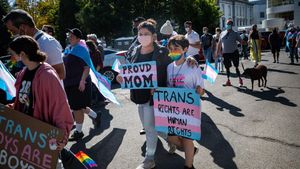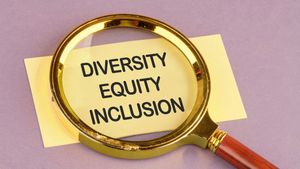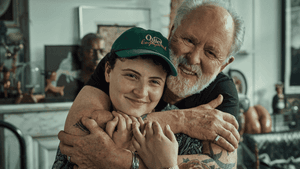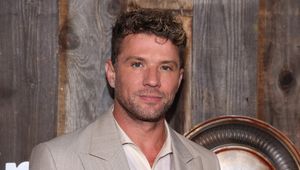Treatment GuideJust DiagnosedSex & DatingAfrican AmericanStigmaAsk the HIV DocPrEP En EspañolNewsVoicesPrint IssueVideoOut 100
CONTACTCAREER OPPORTUNITIESADVERTISE WITH USPRIVACY POLICYPRIVACY PREFERENCESTERMS OF USELEGAL NOTICE
© 2026 Pride Publishing Inc.
All Rights reserved
All Rights reserved
By continuing to use our site, you agree to our Privacy Policy and Terms of Use.
Overcoming insurmountable obstacles, enduring seemingly endless suffering and stress, all while having absolutely no guarantees it will all work out in the end: If you've seen the box-office sleeper March of the Penguins, you know that those tuxedoed charmers will go through just about anything to become parents. But their endeavors have nothing on the Herculean efforts some HIV-positive individuals undertake in trying to become adoptive parents. These people face different, though just as formidable, foes--most notably, the often devastating stigma of living with HIV. 'Across the board, no adoption agencies we tried were interested in anyone with HIV,' says Shelley McKittrick--whose husband, Al, was diagnosed with HIV infection in 1993--of the couple's search for a child, which included tons of paperwork, weekend trainings, formal classes, and a lengthy application process. 'Despite everything, that closed the door right then and there.' Unfortunately, AIDS advocates say the McKittricks' experiences are commonplace. Although the federal Americans With Disabilities Act and state-level antidiscrimination laws offer legal protections to HIV-positive people, there have been few court cases challenging adoption agency policies that bar HIVers. And the McKittricks' own research shows that most agencies routinely turn away HIV-positive applicants--more than a dozen cold calls by HIV Plus to adoption groups resulted in automatic rejections. The McKittricks' struggles were mirrored by those of John and James Doe--who have requested that we not use their real names to protect their privacy--a serodiscordant New Jersey gay couple who sought the help of private adoption agency Children of the World to adopt their second child. After being immediately rejected because John is HIV-positive, the Does took their frustration to court. They filed a lawsuit charging the agency with violating the ADA and the New Jersey Law Against Discrimination. 'We just don't want anyone else to have to go through what we experienced'the rejection and humiliation of being told we would not even be considered for adoption even though we've given our first child a loving and stable home,' says John, who was HIV-positive when the couple adopted their first child. Back in the HIV Closet? After they wed in 1998 the McKittricks--who now live in the Los Angeles suburb of Torrance--explored countless avenues in their dream of starting a family. Shelley was already over 40 when her first attempt at having children ended in a severe ectopic pregnancy. As they pursued adoptions, however, the most insurmountable hurdle--even above the sky-high costs--was always the dreaded health questionnaires. 'One agency we tried required both tuberculosis and HIV tests,' Shelley sighs. 'Clearly, if you have something like end-stage cancer, then you probably shouldn't try to adopt. But why would the forms only list TB and HIV as the two things they were concerned about--and not cancer, emphysema, or any other classic terminal illness? Why just these two?' Ironically, Al and Shelley had spent years as AIDS advocates in Denver, where Al served as executive director of the Denver People With AIDS Coalition. 'I used to think the best way to eliminate the stigma was to come out about my infection,' says Al, who says he was infected with HIV by his former wife, who died in 1996. 'But we were getting very discouraged. We really wanted a kid. After being one of the most out people with HIV in Colorado, all of a sudden we had to go underground. I felt I had to.' Eventually the McKittricks got lucky--they found a pregnant woman looking for a family for her baby, and they used an agency that specialized in designated adoptions to handle the legal paperwork. Now all they needed was a doctor's note that Al was healthy--a physician friend sent a note stating the couple had no 'communicable diseases,' and they were eventually approved. Baby Grace is now 2 years old and the light of their lives. 'Being parents is fabulous,' Shelley says. A Step in the Right Direction The Does' plight has garnered some optimism concerning the future of adoptions. 'Do we see a concern about HIV-positive parents?' asks Rhonda Goldfein, who is the executive director of the AIDS Law Project of Pennsylvania. 'Yes. Does it have any merits? Of course not. A healthy person living with HIV should not be screened out as a potential parent. You should look at the person right now, not what might or might not happen in the future.' The courts seem to agree with Goldfein's logic. The Does received a landmark settlement with Children of the World that requires the agency to publish a public apology in the Essex County, N.J., Star-Ledger, implement antidiscrimination policies and training, and compensate the couple for damages. But will this decision pave the way for others or merely be a blip in society's radar? 'We can't say definitely what the impact will be,' says Jenny Kramer, an attorney with Lowenstein Sandler, a law firm that worked on the case with the Legal Action Center, a nonprofit organization with some of the nation's leading experts on the laws regarding HIV discrimination. 'It's important to educate people, and we hope the results will create more education and help prevent discrimination in the future. 'That would probably be pie in the sky,' she adds, 'but we think this is a step in the right direction.'
From our Sponsors
Most Popular
“So much life to live”: Eric Nieves on thriving with HIV
September 03 2025 11:37 AM
The Talk: Beyond the exam room
August 13 2025 3:15 PM
Messenger RNA could be the key to an HIV vaccine — but government cuts pose a threat
August 20 2025 8:02 AM
It’s National PrEP Day! Learn the latest about HIV prevention
October 10 2025 9:00 AM
Amazing People of 2025: Javier Muñoz
October 17 2025 7:35 PM
The lab coat just got queer
August 21 2025 10:00 AM
The Talk: Owning your voice
August 25 2025 8:16 PM
“I am the steward of my ship”: John Gibson rewrites his HIV narrative
September 16 2025 2:56 PM
Plus: Featured Video
Latest Stories
HIV-positive men stage 'Kiss-In' protest at U.S.-Mexico border
December 01 2025 12:56 PM
What the AIDS crisis stole from Black gay men
December 01 2025 6:00 AM
The Talk: Navigating your treatment
August 01 2025 6:02 PM
The Talk: Starting the conversation
July 25 2025 4:47 PM
Thanks to U=U, HIV-positive people can live long, happy, healthy lives
July 25 2025 2:37 PM
How the Black AIDS Institute continues to fill in the gaps
July 25 2025 1:06 PM
“I felt like a butterfly”: Niko Flowers on reclaiming life with HIV
July 23 2025 12:22 PM
Dancer. Healer. Survivor. DéShaun Armbrister is all of the above
July 02 2025 8:23 PM
BREAKING: Supreme Court rules to save free access to preventive care, including PrEP
June 27 2025 10:32 AM
1985: the year the AIDS crisis finally broke through the silence
June 26 2025 11:24 AM
VIDEO: A man living with HIV discusses his journey to fatherhood
June 10 2025 4:58 PM
Trump admin guts $258 million in funding for HIV vaccine research
June 03 2025 3:47 PM
Grindr is reminding us why jockstraps are so sexy and iconic
May 02 2025 5:36 PM
HRC holds 'die-in' to protest Trump health care cuts
April 28 2025 2:11 PM
Two right-wing Supreme Court justices signal they may uphold access to PrEP and more
April 21 2025 4:10 PM
500,000 Children at Risk: PEPFAR Funding Crisis
April 08 2025 3:51 PM






































































